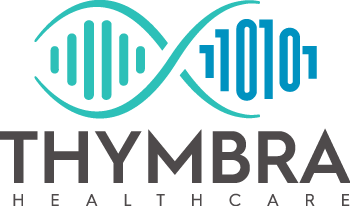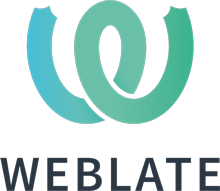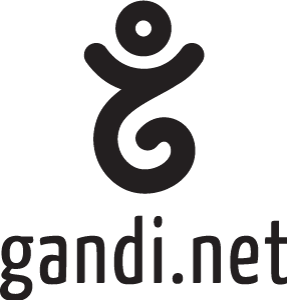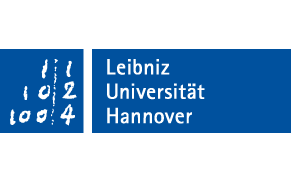Schedule

| TIME UTC+2 | SPEAKER | COUNTRY | ORGANIZATION | PRESENTATION |
|---|---|---|---|---|
| 9:30 | Welcoming Session | |||
| 10:00 | Luis Falcón GNU Solidario |
The Global Exposome Project | ||
| 10:40 | Alvaro Cerezuela ITARA |
GNU Health in Surgical Non-governmental Organizations | ||
| 11:20 | Coffee Break | |||
| 11:40 | Armand Mpassy- Nzoumba GNU Solidario & Blue Rose Project |
GNU Health Implementation in Africa - Reviving the Dream | ||
| 12:20 | Marie Berthe Deudjeu | Transforming Maternal and Newborn Healthcare Management with GNU Health: A Case Study at the Nkometou Medical-Surgical Center in Cameroon | ||
| 13:00 | Lunch Break | |||
| 14:30 | Sébastien Jodogne UCLouvain |
On the Use of DICOM as a Storage Layer for STL and IIIF | ||
| 15:10 | Ali Ali Shahid Sarya Hospital |
Health system in Rojava | ||
| 15:50 | Julian Sassenscheidt Sea Eye |
Search and rescue on the central Mediterranean migratory route | ||
| 16:30 | Coffee Break | |||
| 17:00 | Guido Arnold DISS |
Technology-critical perspectives on AI | ||
| 17:40 | Axel Braun AXXITE |
AI assisted Breast Cancer Screening with GNU Health and Orthanc | ||
| 18:20 - 19:00 | Fernando Sassetti |
GNU Health in cancer control | ||

| TIME UTC+2 | SPEAKER | COUNTRY | ORGANIZATION | PRESENTATION |
|---|---|---|---|---|
| 09:30 | Cristián Maureira-Fredes Qt |
What's new in Qt 6.6? and more! | ||
| 10:00 | Luis Falcón GNU Solidario MyGNUHealth |
MyGNUHealth 2.0: The GNU Health Personal Health Application | ||
| 10:30 | Yannick Lemaréchal, François Pelletier, et al. | PARADIM : A Digital Infrastructure to Support Research in Medical Imaging | ||
| 11:00 | Paula Moreno Fajardo Instituto Tecnológico de Canarias (ITC) |
Opendx28: Open-Source Health App Ecosystem - Modular SaaS for Epidemic Alerts & Tech Education | ||
| 11:30 | Coffee Break | |||
| 12:00 | Walco van Loon | Introduction to Orthanc Server Extensions: A Simple Python Plugin- Based Event Processing Framework for Orthanc | ||
| 12:30 | Benjamin Alan Jamie Weblate |
A year in Weblate - evolution and how it helps GNU Health localization | ||
| 12:45 | Salim Kanoun | An Update on the GaelO Projet | ||
| 13:00 | Lunch Break | |||
| 14:30 | Forrest Li, Lucie Macron, et al. Kitware |
Kitware VolView: An open source, portable, and extensible web application for cinematic rendering and annotating medical images | ||
| 15:00 | Gerald Wiese Leibniz University Hannover & GNU Solidario |
Automating the Installation & Administration of GNU Health using Ansible | ||
| 15:30 | Alain Mazy & Benoit Crickboom Orthanc Team |
Deploy Orthanc as a secured cloud PACS: From A to Z | ||
| 16:00 | Coffee Break | |||
| 16:30 | Gabriel Couture, Yannick Lemaréchal, Philippe Després | PyOrthanc - A Python client for the Orthanc REST API | ||
| 17:00 | Diego Victor de Jesus | Scaling and organizing applications with the usage of Orthanc router containers | ||
| 17:30 | Round Table & Lightning Talks | |||
| Jonathan Feilmeier & Julian Menon Leibniz University Hannover |
Updating the documentation of GNU Health – What’s new? | |||
| Integration of Orthanc into GNU Health | ||||
| FHIR REST in GNU Health & Orthanc | ||||
| 18:30 - 19:00 | GNU Health Social Medicine Awards |
|||
Technology-critical perspectives on AI
Artificial Intelligence (AI) is currently experiencing its iPhone moment. ChatGPT has triggered an unprecedented hype around AI. But how viable is the imitation of 'comprehension' or 'knowledge' when machine learning merely replicates and amplifies stochastic correlations - devoid of meaning? Is there a usage of AI for the common good or are we more likely to face a disempowering social decay as AI assistance increases?
Guido Arnold / Duisburg Institute for Linguistics and Social Research (DISS)
Search and rescue on the central Mediterranean migratory route
Migration across the Mediterranean is considered the world's most dangerous migratory route, with thousands of drowned and missing migrants every year. Since 2015, the NGO Sea Eye has been operating ships that conduct search and rescue (SAR) operations on the central Mediterranean route. Since then, more than 17,000 refugees have been rescued from distress at sea. From the beginning, the missions have been accompanied by medical teams that provide care in the onboard hospital. To improve the documentation of medical cases, GNU Health was installed on the ship's server in 2023. Further applications like stock management and information management of all guests on board are conceivable. This presentation describes the SAR actions of the NGOs working on the Mediterranean, the medical work on board and the first steps of the implementation of GNU Health.
Julian Sassenscheidt / Sea Eye
Automating the installation & administration of GNU Health using Ansible
This project aims to automate and improve the installation strategy of GNU Health. Different features were added in order to enhance security and performance. Nevertheless Ansible allows to keep the installation easy, overseeable and reproducible. By using our PyPI packages for installing GNU Health itself we are becoming independent from operating systems package maintainers. During the last year the main advances are in areas of modularity, testing, polishing and adding more standard system administration procedures. GNU Health is already hosting a repository of this in parallel with the traditional installation method but might move the default installation strategy to Ansible.
Gerald Wiese / Leibniz University Hannover & GNU Solidario
Deploy Orthanc as a secured cloud PACS: From A to Z
While the local installation of Orthanc is quite straight forward, it could become a little bit tricky when Orthanc has to be deployed into the cloud. We will walk through the whole process, step by step, until a fully secured and world wide reachable PACS. We will describe the prerequisites and show how to fully configure the server. Then, we will review the Compose file and deploy Orthanc thanks to Docker. We will highlight the sensitive information to manage and show how the user management system works.
Alain Mazy & Benoit Crickboom / Orthanc Team
On the Use of DICOM as a Storage Layer for STL and IIIF
A common misconception about DICOM is that this interoperability standard is entirely focused on medical images that are made of pixels/voxels. In this talk, we will demonstrate how DICOM can be used to store, archive, and share, on one hand, 3D models of anatomical structures encoded as STL files and, on the other hand, high-resolutions images that are not related to the medical field. Firstly, this talk will introduce a free and open-source software pipeline to generate models either from binary bitmap volumes that were produced by artificial intelligence algorithms, or from contours that were manually delineated by physicians, then to encapsulate the generated models as DICOM instances. Our pipeline also features a lightweight Web viewer that is suitable for rendering DICOM STL instances by any Web browser. Secondly, this talk will explore how the DICOM standard has the potential to contribute to the long-term preservation of humanities research data, besides standard medical images. More precisely, an Orthanc plugin that publishes DICOM images according to the IIIF standard will be introduced, which represents a fully working solution to archive and exchange cultural assets, with application to international cooperation in education and culture preservation.
Sébastien Jodogne / UCLouvain
The Global Exposome Project
The Global Exposome is a GNU Solidario project that takes a holistic approach to the effect the environment has on living organisms as a whole. The current economic model is both unethical and unsustainable. Climate emergency; water, air and land pollution; deforestation and war are putting humanity and the planet at the brink of the point of no return. This greedy model is not only impacting our physical health. This model is behind an unprecedented humanitarian catastrophe that is forcing millions to migrate, converting the Mediterranean sea and Atlantic ocean in massive graveyards. Intensive farming, xenobiotics and the current biomedical research model are examples that place the human being as a causative, etiological agent for many of the current stressors that affect human and nonhuman animals, plants and other living organisms on earth. The Global Exposome project mission is to investigate the role of the environment in different health conditions through open science and cruelty-free research. Most importantly, our project is about educating individuals with scientific evidence. If there is still a chance to avoid extinction, it will be through collaboration, compassion and empathy in every aspect of our society.
Luis Falcón / GNU Solidario
Opendx28: Open-Source Health App Ecosystem - Modular SaaS for Epidemic Alerts & Tech Education
The OpenDx28 project will be showcased, starting with its goal on the utilization of open-source healthcare applications as cloud services. Initially aimed at providing partners with access to these tools, the project later integrated applications such as GNU Health, DHIS2, Orthanc, and 3D Slicer, all made accessible via a web browser through containerization. As the project progressed, teaching experiences were tailored based on feedback from partners, leading to more effective knowledge transfer and application use. Subsequent developments included the establishment of the 3D Slicer Hub and the integration of indicators for DHIS2 dashboards, supported by ETL processes from GNU Health to DHIS2. As the project evolved, ideas for enhancements emerged. These encompassed the potential creation of a "platformer" based on Helm for distinct tenant deployments and the introduction of a Single Sign-On (SSO) system.
Paula Moreno Fajardo / Instituto Tecnológico de Canarias (ITC)
AI assisted Breast Cancer Screening with GNU Health and Orthanc
Screening programs for Breast Cancer require a high number ofprofessionals. vara, a Berlin-based company, has developed anAI-powered solution for screening of mammography images, that is used already in Germany, Egypt, Mexico and India. It significantly reduces the workload of a radiologist. While Orthanc is used for modality management, GNU Health manages the patient registration, referrals and analysis. AXXITE was asked to support the GNU Health customizing. In this talk I will describe the overall solution as well as the extentions that we have made for GNU Health.
Axel Braun / AXXITE
What's new in Qt 6.6? and more!
Since the release of Qt6, developers have been focusing on different tasks depending on the maturity of the new major release. At the beginning the focus was on reaching API parity, later fix issues, and even adding some new modules. Now with 6.6, the focus is on improving the offering after the last 6.5 LTS version. Qt gRPC and Protobuf made their debut in past versions, and are being actively developed to include Qt features into it like QML-types for auto-generated classes, and many Core and GUI types for the .proto schema. A new module will be releases, Qt Graphs, to replace the old Qt Data Visualization, and lots of QRhi changes to bring the best of Qt Quick and Qt Quick 3D. The Qt for Python is making a big step towards being accessible by Qt users, being included in the Maintenance Tool, improving the Qt Creator options, and even reaching a new platform architecture. But after this release, where is Qt going? and how can Qt help the communities to develop more Free and Open Source tools that can help us having a more Open society? This talk will not only highlight features, but also provide different paths so the real needs out there, can reach future Qt releases.
Cristián Maureira-Fredes / Qt
An Update on the GaelO Projet
The GaelO project is a web platform for medical imaging management in clinical trials and aims to push innovative use of medical imaging such as personalized risk treatment strategy in cancer research. Started in 2018, the GaelO project was presented at the first Orthanc Con in 2019. Nowadays, the GaelO platform has been fully rewritten providing an end to end medical imaging platform for clinical trials. GaelO uses Orthanc as a DICOM storage backend and contributes to its ecosystem. To this day, GaelO platform has been used by 15 trials, collecting more than 3 500 dicoms studies especially in the academic field and lymphoma research. Currently the developpement is now focusing on image processing features such as AI-inference integration such as automated tumor burden calculation on FDG PET/CT and inclusion on new imaging modalities such as radiotherapy trials. From this project, we created the Pixilib startup that will, additionally to GaelO, build new solutions such as DICOM research management platform for hospitals (project OrthancToolsJS) and a e-learning solution for nuclear medicine physicians (see Moodle integration of OHIF/Stone viewers). Pixilib through the GaelO and others future projects aims to collaborate with several open source projects to stimulate medical research and a better inclusion of medical imaging in clinical trials.
Salim Kanoun






